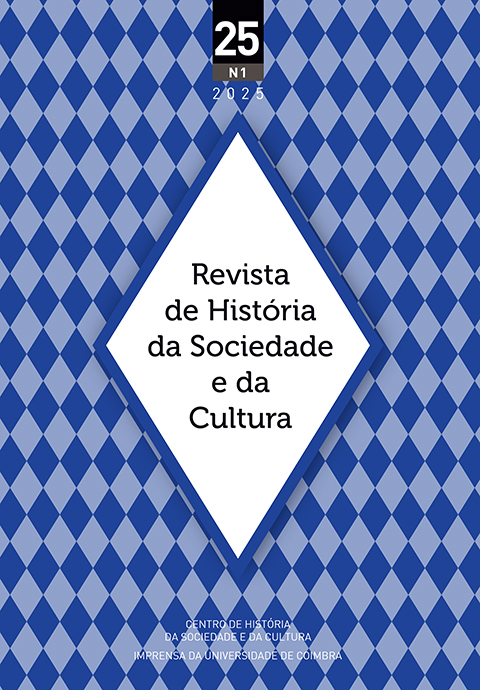Alexandre Herculano’s “A abóbada (1401)”: a parodied forgery and coarse replicas of a patriotic narrative about Batalha
DOI:
https://doi.org/10.14195/1645-2259_25-1_1Palabras clave:
Nationalism, Artistic interchange, TransnationalityResumen
This article focuses on the short story “A abóbada (1401)” (The vault [1401]) by the Portuguese author Alexandre Herculano with a view to analyse the origin and development of a narrative that established national and international debates on the historiography of the Gothic architecture in Portugal. The article starts by examining the origins and development of the legend of the vault in Batalha’s chapter house, simultaneously with a discussion of the emergence of the monastery’s modern historiography. This is followed by a critical analysis of Herculano’s short story. Part three assesses the impact that, until recently, the tenets generated by Herculano’s narrative have had on the historiographical discourse centred on Batalha’s monastery, which alternated between ideas of a “national” and a “foreign” origin of its architecture. Finally, the article discusses recent theories that allow to overcome this dichotomy, opening a new era to Late Gothic architectural
Descargas
Descargas
Publicado
Número
Sección
Licencia
Derechos de autor 2025 Revista de História da Sociedade e da Cultura

Esta obra está bajo una licencia internacional Creative Commons Atribución 4.0.
Los autores conservan los derechos de autor y conceden a la revista el derecho de primera publicación, estando el trabajo simultáneamente bajo la Licencia de Atribución de Creative Commons que permite compartir el trabajo con el reconocimiento de la autoría y la publicación inicial en esta revista.











